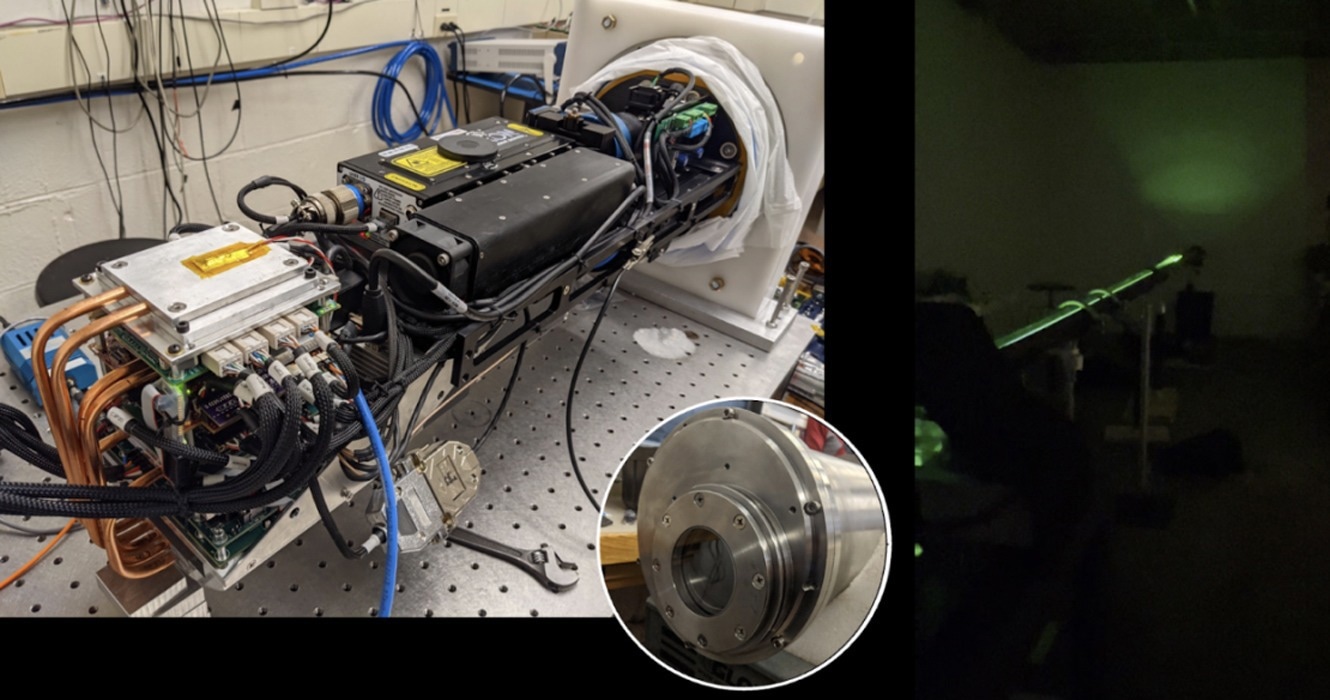A group of researchers and engineers from the SETI Institute, Impossible Sensing, NASA JPL, and other institutions will assess their ground-breaking robotic laser system on a deep-sea expedition aboard the E/V Nautilus.

The assembled Laser Divebot. Image Credit: APL/Impossible Sensing
The mission, known as InVADER (In-situ Vent Analysis Divebot for Exobiology Research), focuses on improving technologies to explore, define, and sample the seabed on Earth. In specific, InVADER’s Laser Divebot will identify catalog biodiversity and marine minerals in the seabed more quickly and more economically than before.
Our technology will revolutionize oceanography like digital photography disrupted film photography. Scientists will no longer have to collect and ship samples to a lab and wait weeks for the results. InVADER will do it in just a few hours and with zero environmental impact. This approach will allow scientists to learn more about the ocean much faster, which is essential for protecting it.
Pablo Sobron, Research Scientist and Project Lead, SETI Institute
If effective, those technologies can be employed to examine ocean worlds in the solar system, like Europa and Enceladus, to aid in understanding whether they could host life and be habitable.
For the first time, The E/V Nautilus expedition will employ InVADER’s Laser Divebot in the Kingman Reef and Palmyra Atoll region between May 16th and June 14th, 2023. These waters accommodate some of the most untouched marine ecosystems on Earth.
Besides offering a site for assessing technologies for planetary exploration, the research group will add up to improved insights into the deep-water resources and biodiversity of unseen habitats and seamounts, which will make people aware of the management and science requirements of the region.
The Laser Divebot will be fixed on ROV Hercules. The pair will map the seafloor areas with notable accuracy and speed. The core of the innovation is an advanced laser spectroscopy collection that offers long-range and ultra-high sensitivity laser Raman and laser fluorescence spectroscopy to the seafloor for the first time.
The study group thinks of conducting several dives with the Laser Divebot at the time of the expedition and making quick compositional maps in-situ with the use of its advanced laser spectroscopy suite. Such maps will offer an unparalleled understanding of the mineral resources and microbial metabolisms of the seabed. For further lab examination, the team will also bring back fluids and mineral samples.
The InVADER project is financially supported by a NASA Planetary Science and Technology from Analog Research (PSTAR) grant. Dr. Pablo Sobron, a SETI Institute Physicist and Founder of Impossible Sensing, and Dr. Laurie Barge, a NASA JPL research scientist, lead the project.
The project also involves collaborators from the University of Washington’s Applied Physics Laboratory, the University of Hawai’i, the University of Southern California, the State University of New York—Stony Brook, the University of Southampton, the Lunar and Planetary Institute, Oak Crest Institute of Science, Honeybee Robotics, Impossible Sensing, and the Geological Survey of Belgium.
The NOAA’s Ocean Exploration Consortium Initiative and the Bureau of Ocean Energy Management’s Marine Minerals Program offered further finance to build and employ the technology.